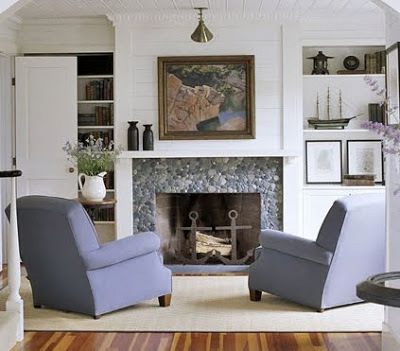A Simple Way to Get Feedback from People Who Tour Your Home
Monday, July 30, 2012
| Do you know what people really think of your home? Here's how to get inside buyers' minds. |
Hey, homesellers. Are you sick of people coming to look at your house and then never hearing from them again?
Do you wonder why they didn't make an offer? Do you question what they liked? Do you want to know what bothered them? What they thought of the price? The neighborhood? The floor plan? Your decor?
Whenever I have a house for sale, I want feedback. It’s never too late to tweak the staging, add a simple upgrade, get rid of a minor problem, or …dare I say it… lower the price.
Do you wonder why they didn't make an offer? Do you question what they liked? Do you want to know what bothered them? What they thought of the price? The neighborhood? The floor plan? Your decor?
Whenever I have a house for sale, I want feedback. It’s never too late to tweak the staging, add a simple upgrade, get rid of a minor problem, or …dare I say it… lower the price.
Even when working with a Realtor and doing all the right homework (like reading my eBooks), without feedback, you’re guessing how the market sees your home.
Not everyone who views your home will tell his real estate agent what he really thought about your home. If a client acts disinterested, a good agent will probe for reasons, because a good agent wants to know what’s important to her client.
But some people feel bad saying negative things, or they may not understand fully what made them react to your home the way they did. So, not all feedback is helpful or complete.
Translating comments
If a potential home buyer says, “The house is nice, but …”
- ...But they don’t like the carpeting.
- ...But kitchen is too small.
- ...But the appliances have to go.
- ...But they’re not crazy about the neighborhood.
Their comments mean they are seeing bigger kitchens, or better flooring, or newer appliances, or nicer neighborhoods for the same price. Without choosing the exact phrasing, they are saying that they know they can get more for their money.
| Buyers typically look at similar homes in similar neighborhoods, at a similar price point. This means you need to know your competition to arrive at a fair asking price. |
It's all about Perceived value
Staging is one way to increase the perceived value of your home. Another way is pricing it correctly. Getting feedback will help you in both cases.
Your Realtor will help you set your asking price. There are objective methods to arrive at fair market value, but fair market value also depends on how the market responds to your home. That's where feedback comes in handy.
Here is how one Realtor makes it easy to tune into what home buyers are saying about a listing. She simply sends this questionnaire out to every real estate agent who shows the property. She asks them to email or query the client, and get quick answers to these multiple choice questions.
Here is how one Realtor makes it easy to tune into what home buyers are saying about a listing. She simply sends this questionnaire out to every real estate agent who shows the property. She asks them to email or query the client, and get quick answers to these multiple choice questions.
How would you rate the home's curb appeal?
- Excellent
- Good
- Fair
- Poor
| Some homes have curb appeal on two sides. This home for sale in Florida on the Intracoastal Waterway needs to look good from front and back. |
- Very comfortable and stylish
- Clean and organized
- Average
- Needs improvement
- No improvements needed
- Some exterior improvements needed
- Some interior improvements needed
- Appliances need updating or upgrading
| A home in a subdivision is bound to be compared to the other homes in the same (and nearby) subdivisions. A seller needs to match or beat these competing homes |
How is the home priced compared to other homes?
- Price is very appealing
- Price seems fair
- Home is somewhat overpriced
- Home is substantially overpriced
| A charming entrance is the beginning of what could become a purchase offer. Knowing how buyers respond to your home can help you fine tune your property. |
- Undecided
- No
- Yes
Get the Facts!
It takes less than a minute to get answers to these questions. I encourage you to share this idea with your Realtor, so you’ll be on your way to knowing what’s good about your property and what might need some attention.
Fix your home to get the best possible grades from potential buyers. Start now by downloading my $4.99 eBook, DIY Home Staging Tips to Sell Your Home Fast and For Top Dollar.







